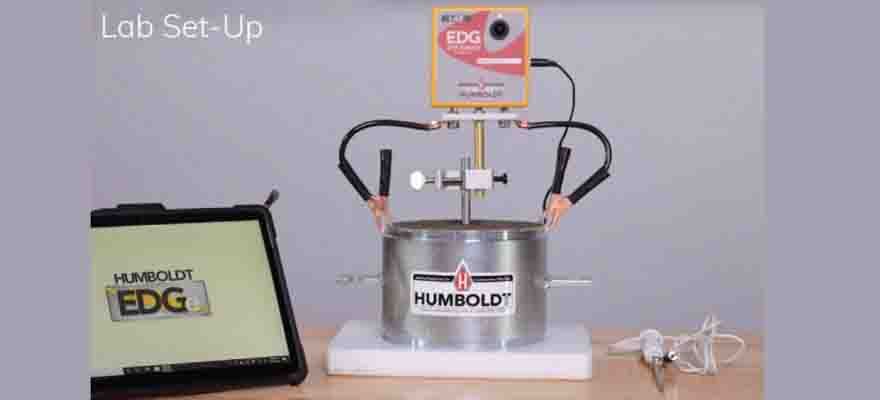
Why Field Testing Equipment is Crucial for Environmental and Soil Testing
Why Field Testing Equipment is Crucial for Environmental and Soil Testing
Field testing equipment plays a vital role in environmental and soil testing by providing accurate and real-time data for assessing soil properties, contamination levels, and structural stability. Engineers, geotechnical experts, and environmental scientists rely on these tools to ensure the safety, sustainability, and compliance of construction projects and environmental studies. This article explores the importance of field testing equipment and the essential tools required for accurate environmental and soil analysis.
The Importance of Soil and Rock Strength Testing
Understanding the strength and composition of soil and rock is crucial in preventing structural failures and ensuring sustainable construction. The Rock Triaxial Testing Equipment is used to determine the mechanical behavior of rock samples under different stress conditions. This information is essential for designing stable foundations, tunnels, and bridges.
Similarly, soil consolidation testing helps engineers predict soil settlement behavior under various loads. The Automatic Consolidation Test Apparatus evaluates how soil compresses over time, ensuring that buildings and infrastructure remain stable without excessive settlement.
Non-Destructive Testing for Environmental Integrity
Environmental safety is a key aspect of modern construction and infrastructure projects. Non-destructive testing (NDT) methods allow engineers to assess material quality without causing damage. The Pundit UPV Tester is widely used to detect internal defects in concrete and rock structures, providing insights into their durability and strength. This method ensures that buildings and infrastructure comply with safety regulations while minimizing environmental impact.
Ensuring Asphalt Durability for Sustainable Infrastructure
The durability of asphalt roads is a significant factor in long-term sustainability. The Automatic Marshall Compactor is an essential tool for evaluating asphalt mix stability and density. Properly compacted asphalt contributes to road longevity, reducing the need for frequent repairs and minimizing environmental disruptions.
Aging simulations help engineers design long-lasting asphalt materials. The Pressure Aging Vessel tests the long-term effects of weather and traffic conditions on asphalt binders, ensuring their durability and resilience in different environmental conditions.
Soil Stability and Shear Strength Testing
Soil stability is a key factor in preventing landslides, erosion, and structural failures. The Automatic Direct Shear Test measures the shear strength of soil, helping engineers determine the best methods for constructing safe embankments, slopes, and retaining walls.
For more comprehensive soil analysis, the Automatic Triaxial Testing System evaluates soil behavior under controlled stress conditions. This data is critical for designing structures that can withstand earthquakes, heavy loads, and extreme environmental factors.
Foundation and Pile Testing for Structural Integrity
Foundation testing ensures that structures are built on stable ground, minimizing the risk of settlement and failure. The Pile Integrity Tester is used to detect defects in deep foundations, ensuring that piles are free from cracks and voids. This test is essential for verifying the quality of foundation systems in high-rise buildings, bridges, and industrial facilities.
Additionally, Pile Foundation Testing evaluates the load-bearing capacity of piles, providing engineers with the necessary data to design strong and durable foundations.
Comprehensive Soil Analysis for Environmental Assessments
Soil quality plays a crucial role in determining the suitability of land for agriculture, construction, and environmental restoration. Engineers rely on Soil Testing Equipment in India to measure key soil properties, including permeability, compaction, and moisture content. These tests help in making informed decisions regarding land development, water drainage, and soil remediation.
The Field CBR test is another essential tool for evaluating soil strength, particularly for road construction. This test helps engineers determine whether a soil subgrade is strong enough to support heavy traffic loads, ensuring that highways and pavements remain stable over time.
Safety Considerations with Crash Barriers
Safety is a top priority in infrastructure projects, especially in highway construction. A Metal Beam Crash Barrier Supplier provides crash barriers designed to minimize accident impacts. Engineers use specialized testing methods to evaluate crash barrier performance, ensuring compliance with safety regulations and reducing road fatalities.
Conclusion
Field testing equipment plays a crucial role in environmental and soil testing by ensuring accurate assessments, regulatory compliance, and long-term sustainability. From rock and soil strength analysis to asphalt durability and foundation integrity, these tools help engineers and environmental specialists design safe, eco-friendly, and resilient infrastructure. Investing in high-quality field testing equipment enhances construction efficiency, minimizes risks, and promotes sustainable development for future generations.
Appreciate the creator